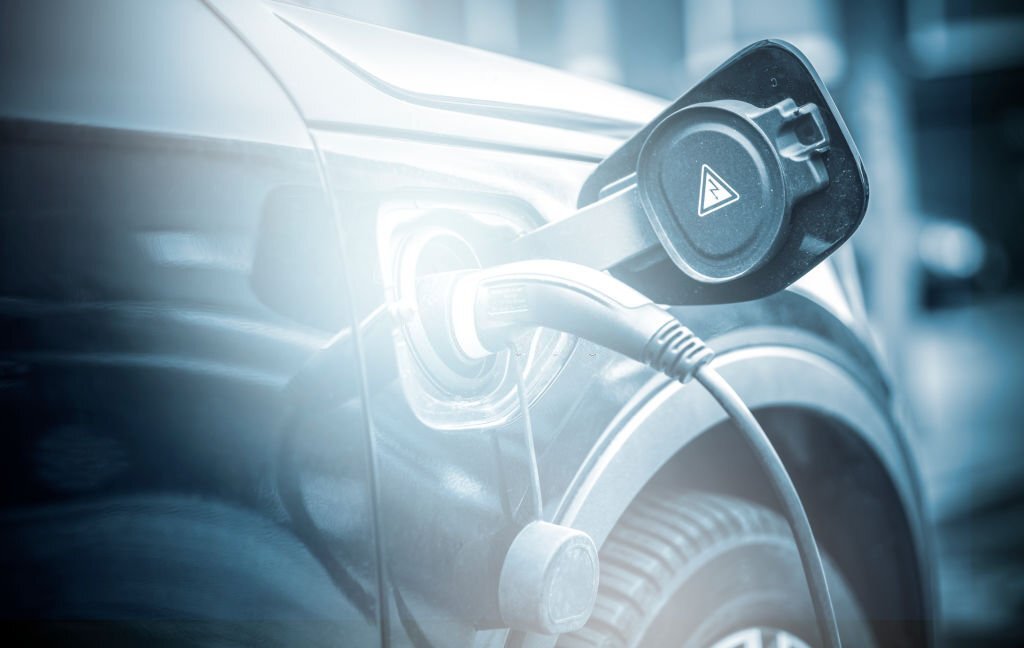By Riley Beggin, The Detroit News (TNS)
The U.S. Treasury is changing how it defines a sport utility vehicle Friday after car companies lodged complaints that some vehicles were wrongfully being boxed out of new electric vehicle tax credits.
The change is likely to be the difference between thousands of dollars in consumer discounts. Under new federal tax credits, SUVs, trucks and vans can cost up to $80,000 and still qualify for a $7,500 credit. Sedans, however, must stay under $55,000 to get the same price cut.
It will allow “crossover vehicles that share similar features to be treated consistently,” the Treasury said in a statement Friday. Among the models affected by the change are General Motors Co.’s Cadillac Lyriq and Tesla Inc.’s Model Y.
Treasury had adopted a definition of SUVs that is used in federal Corporate Average Fuel Economy standards, which require vehicles to have a series of specific features, including “an extended roof line” to increase capacity, a trunk that is open to the passenger seating area, and at least one seat that can be “readily removed or folded” to create more trunk space.
That disqualified certain vehicles that automakers marketed as SUVs but which didn’t fit the definition, such as the Lyriq or variants of the Model Y. The 2023 Lyriq has a base MSRP of around $62,000 and the 2022 Model Y has a base MSRP of around $65,000—making them eligible if considered an SUV but not eligible if considered a sedan.
Automakers pushed the Treasury to instead adopt a broader definition that classifies SUVs based on weight. It’s the same one the federal government uses in window stickers and on its consumer-facing website, FuelEconomy.gov.
“I’m reminded of the old saying: If it looks like an SUV and drives like an SUV … it is an SUV,” wrote Alliance for Automotive Innovation President and CEO John Bozzella in a recent blog post. The Alliance advocates for most U.S. automakers in Washington.
SUVs have been growing in popularity for decades and now dominate the U.S. market. As of 2021, they made up 56% of all new vehicle production, according to the EPA.
That’s why it’s not just “griping from automakers” Bozzella argued—it could lead to confusion for consumers who may struggle to determine whether they can get a credit for their preferred vehicles.
“That’s going to be a setback for prospective EV buyers, not to mention our collective goal of 40-50 percent EV sales by 2030,” he wrote.
Tesla CEO Elon Musk tweeted in January that the tax credits were “messed up” and reportedly raised the issue when he met with White House officials last week.
GM also became a leading voice in pushing regulators to change the rules.
“GM and other manufacturers have raised these conflicting classifications and the impact they have on consumers with the Treasury Department,” wrote Omar Vargas, vice president and head of Global Public Policy at General Motors Co., in a post on LinkedIn.
“We hope that they will move quickly to align with existing U.S. government definitions and practices as applied in consumer-facing resources like fueleconomy.gov.”
During a tour of the Washington, D.C., auto show last week, GM’s vice president of global regulatory affairs and former NHTSA administrator David Strickland guided Energy Secretary Jennifer Granholm toward the Lyriq on the show floor, pointedly referring to it as an SUV multiple times.
Both GM and the Alliance praised the decision in statements Friday. Bozzella called it “a very good decision” that “instantly helps customers” and GM spokesperson Jeannine Ginivan said it “will provide the needed clarity to consumers and dealers.”
Albert Gore, executive director of the Zero Emission Transportation Association, also called it “great news” as “crossover SUVs are the fastest growing segment in the market today.”
Ford Motor Co., whose Mustang Mach-E and other plug-in hybrid SUVs qualified under the old rules, still supported a shift.
“Aligning vehicle classifications with the existing ones already used by the EPA and DOE at fueleconomy.gov will both help our customers and serve our nation’s climate goals,” spokesperson Melissa Miller said in a statement.
If someone bought a vehicle that now qualifies since the beginning of January, they can claim the credit, the agency said.
The Treasury Department is responsible for implementing many of the tax-related provisions of the new Inflation Reduction Act, which appropriated nearly $370 billion for clean energy priorities.
The EV tax credits have been a cause for grumbling in the industry, however, as new requirements aimed at incentivizing domestic or ally-shored critical mineral and battery production have made it challenging for companies to qualify.
Treasury has said it will issue more guidance on the mineral and battery rules in March. In the meantime, vehicles that meet basic requirements, including the MSRP cap, can qualify for the credit without meeting the mineral and battery requirements.
_____
©2023 www.detroitnews.com. Visit at detroitnews.com. Distributed by Tribune Content Agency LLC.
Thanks for reading CPA Practice Advisor!
Subscribe Already registered? Log In
Need more information? Read the FAQs
Tags: Income Taxes, IRS, Taxes




